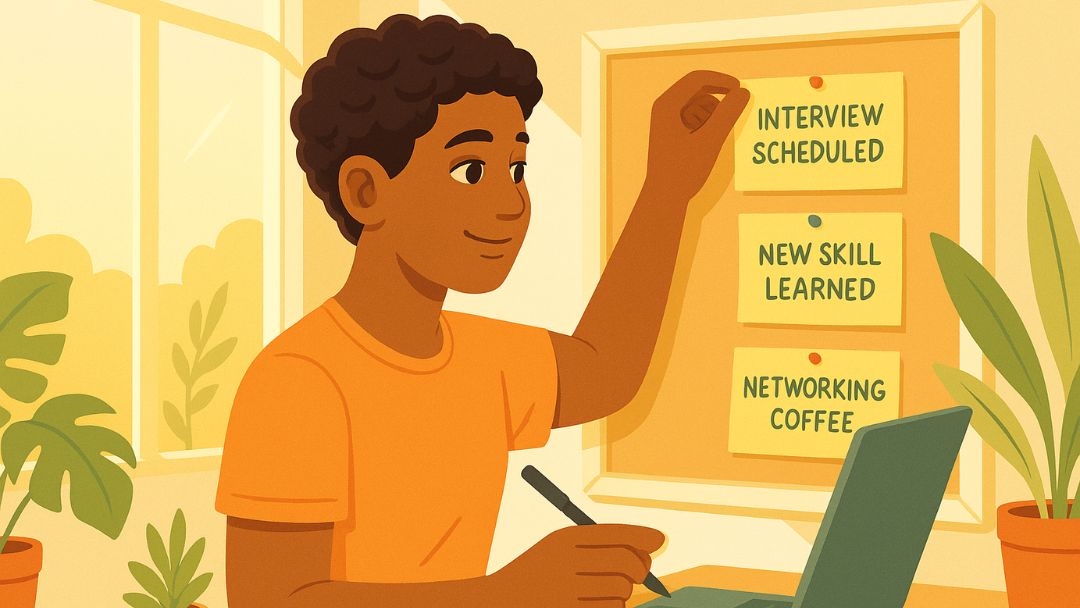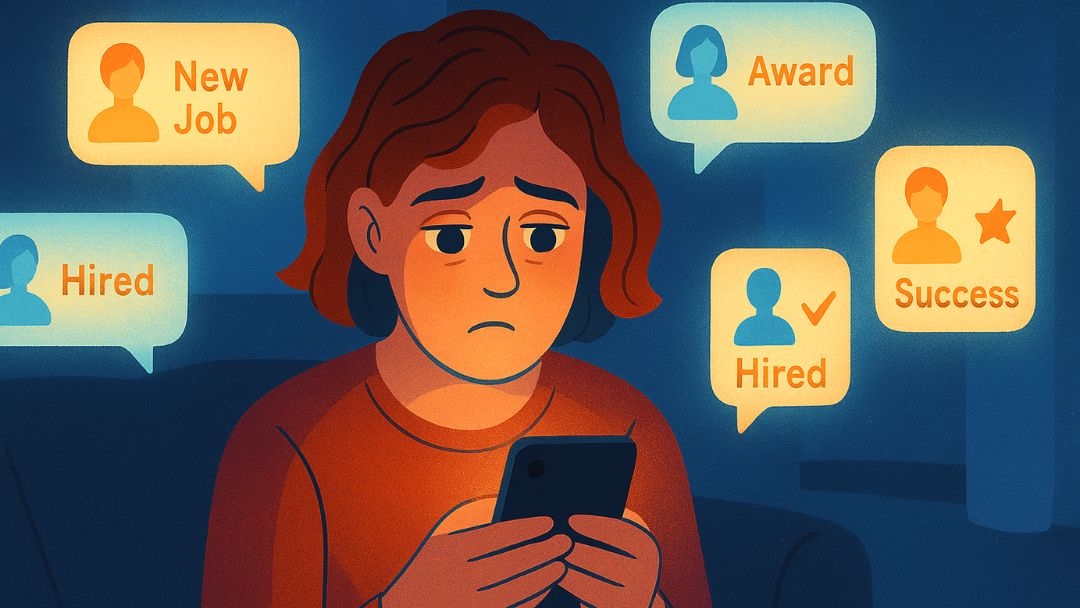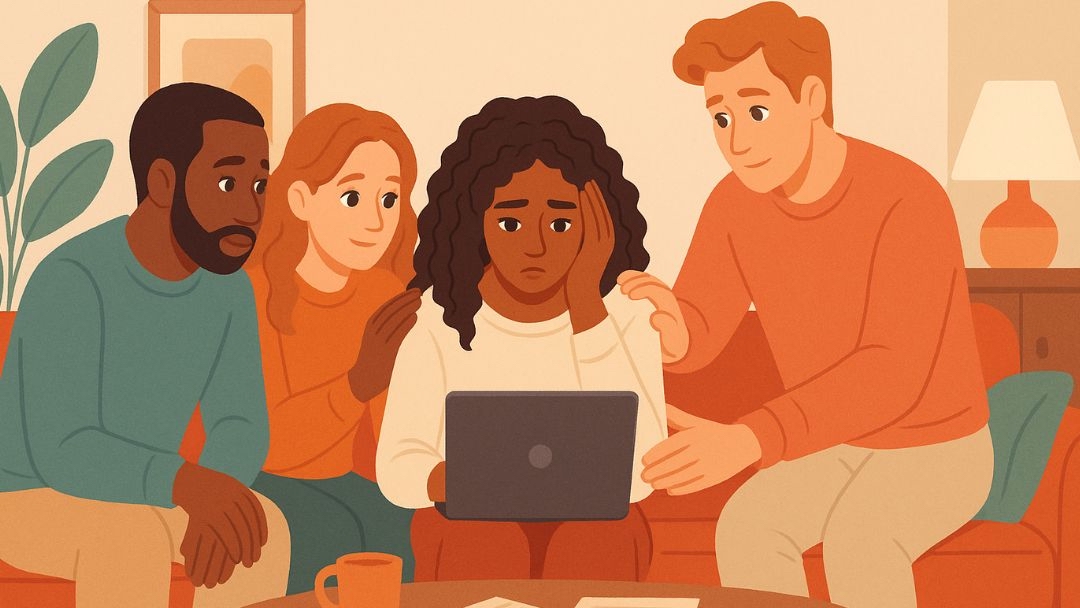Overcoming Job Search Depression: 9 Ways to Cope When the Hunt Wears You Down
Can’t find a job and feeling depressed? You’re not alone. The job search can wear you down emotionally, especially after countless applications and rejections. Learn how to cope with job search depression, manage stress, and regain your confidence as you keep moving toward the right role.


Back
6 mins read
I once tried to find a backup job while I was happily employed in a role I loved. At the time, I thought it would be smooth sailing because I was neither desperate nor under pressure. But after a few weeks filled with uncertainty, rejection, stress, and anxiety, I noticed early signs of depression. I couldn’t seem to land another job, and that made me afraid of what would happen if I ever lost the one I had.
And that was me with a steady income and a great job. Now imagine how much heavier job hunting feels for someone unemployed, with no safety net or direction, facing rejection after rejection. I’ve been there before.
Millions are there right now. In fact, online searches for phrases like “can’t find a job depressed” have been rising, showing just how many people are struggling silently with this same emotional weight. And as fate would have it, I’m about to face it again in the next few weeks.
Job search depression is real. I’m not exactly looking forward to reliving it, but I do know that what I learned from experience might help me navigate what’s coming. And maybe it can help you if you’re going through it too.
Related: How to Be Happy When Depressed: 13 Practical Tips to Find Light in the Midst of the Storm
9 Ways to Cope When the Job Search Wears You Down
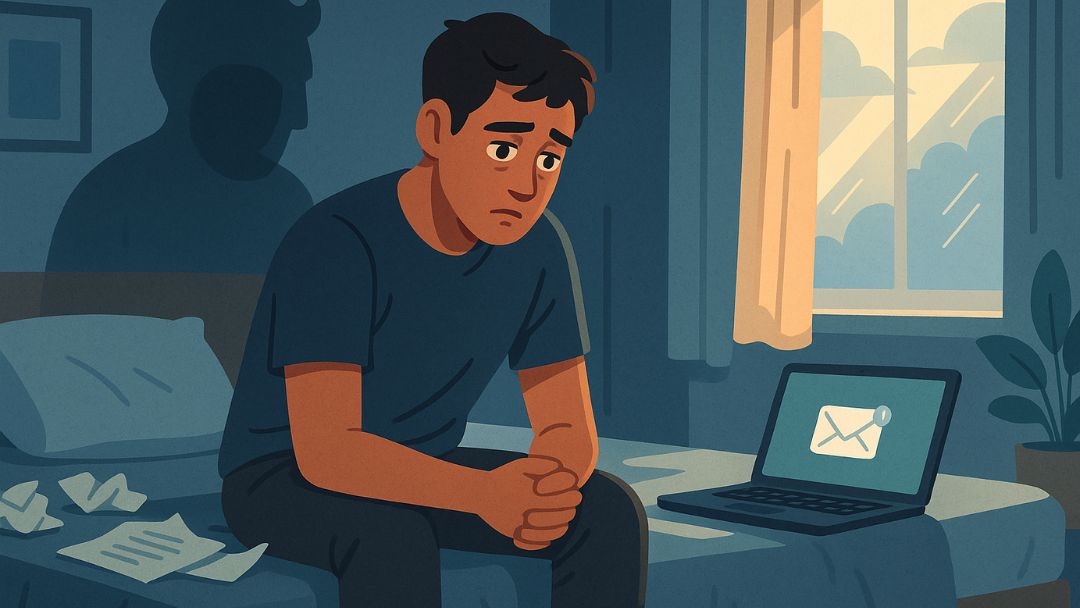
It took experience and a lot of trial and error to figure out what worked for me. And I tried everything. Or at least that’s what it felt like. I ran through every list of positive affirmations and self-reassurances until the words felt empty.
I remember seeking answers online and finding the most generic advice possible. Don’t get me wrong. They were good tips in theory. But they weren’t what I needed or what I even had the energy to try at that point.
I won’t do that to you. If you’re in that dark phase right now, here are nine honest and realistic strategies that can help you cope, regain balance, and rebuild hope.
1. Permit Yourself to Feel All the Emotions
Finding a healthy way to let your emotions out will lift the weight off your chest and help you think more clearly about your next steps.
While my job search dragged on and the rejection kept piling up, I pretended I was fine, until the pressure started to break me from the inside. I was stressed, angry, and scared. I tried hard to stay composed. But sometimes, the best thing you can do is stop holding it together.
Let yourself cry if you need to. Scream into a pillow. Go for a run, punch a cushion, or blast a song and sing your heart out. Do whatever helps you release that built-up frustration, as long as it’s healthy. Once you've done that, turn your attention to the good things in your life. Gratitude goes a long way toward improving mood during dark times.
2. Bring Structure Back into Your Days
Creating a steady routine gives you a sense of control and purpose when everything else feels uncertain.
Most of us don’t realize how much stability our job brings into our lives. It dictates when we wake up, rest, and how our days flow. When that’s suddenly gone, the emptiness of unstructured time can pull us into overthinking, guilt, or sadness. Rebuilding structure helps you reclaim balance.
Set specific hours for your job applications, networking, and follow-ups, then make time for self-care, hobbies, and rest. Having a plan gives your mind something to hold on to and keeps the chaos from taking over.
3. Limit Your Exposure to Social Media
Constantly seeing others’ career wins or struggles online can deepen your sense of hopelessness and make you feel worse about your own journey.
During my lowest point, scrolling through social media only made things harder. On LinkedIn, it felt like everyone was landing new jobs, earning promotions, or celebrating achievements. Even though I was happy for them, it reminded me of everything I didn’t have at that moment.
Then, on the flip side, I’d come across posts from people who were just as qualified but still struggling to find work. That was equally discouraging. I kept thinking, “If they can’t find a job, what hope do I have?” Social media can feed unhealthy comparison, fear, and sadness when you’re already vulnerable. Limit your exposure by checking it only for practical updates or networking.
4. Take Breaks Without Guilt
Rest gives your mind a chance to breathe, ease the anxiety, and restore the emotional energy you need to keep going.
When you’re unemployed, you may feel as if every minute you’re not job hunting is wasted. But that kind of pressure only leads to burnout and frustration. Step away from your search and do things that force you to be present, like cooking, watching a funny show, visiting a friend, or taking a long walk.
Occasionally, give yourself a full day or weekend where you’re not allowed to think or talk about the job hunt at all. Taking healthy breaks helps protect your sanity and provides the motivation you need to keep going.
5. Talk to Someone, Even When You Don’t Feel Like It
Sharing your struggles with people who care helps release the emotional burden that grows heavier in silence.
I’ve seen many people withdraw when they’re having a tough time in the job market. They stop replying to texts, cancel plans, and pretend everything is fine. However, I’ve learned that silence and isolation feed sadness. Sharing what you’re feeling with someone who listens, like a friend, family member, or mentor, keeps you from sinking deeper into your own thoughts.
Tell a loved one that you’re having a hard time. Let them remind you that you’re not alone, that you’re more than your current struggle, and that there’s still life beyond this phase.
If you don't have anyone close to talk to, the 988 Lifeline is anonymous and free.
6. Find a Productive Pursuit While You Wait
Doing something meaningful with your time helps you regain purpose and keep depression from taking over your days.
When you’re jobless, the long hours of having nothing to do can quickly turn into self-blame, rumination, and despair. Filling that time with something productive like volunteering, freelancing, learning a skill, discovering a new hobby, or even helping your community, gives your mind something positive to focus on.
A productive pursuit reminds you that while you may not have a job right now, you still have worth, potential, and something to offer.
7. Be Kind to Yourself
Self-compassion helps you silence the harsh inner critic that thrives during job search struggles.
I was my harshest critic while dealing with job search depression. I replayed rejections, doubted my abilities, and felt like I’d somehow failed at life. But I learned that being unkind to yourself only deepens the wound.
Remind yourself that your employment status doesn’t determine your worth. Focus on what you can control and give yourself grace for the rest.
8. Practice Self-Care
Taking intentional care of your body and mind helps you rebuild emotional balance and protect your mental health.
Job hunting drained me emotionally, mentally, and physically. I spent hours scrolling through openings, writing applications, and bracing for rejection, until I was running on fumes without realizing it. It was only after I prioritized self-care that I regained my balance.
While navigating this tough period, do small things that restore you. Take walks, stretch, meditate, read, swim, or spend quiet time in nature. Focus on activities that bring you happiness.
9. Take Care of Your Health
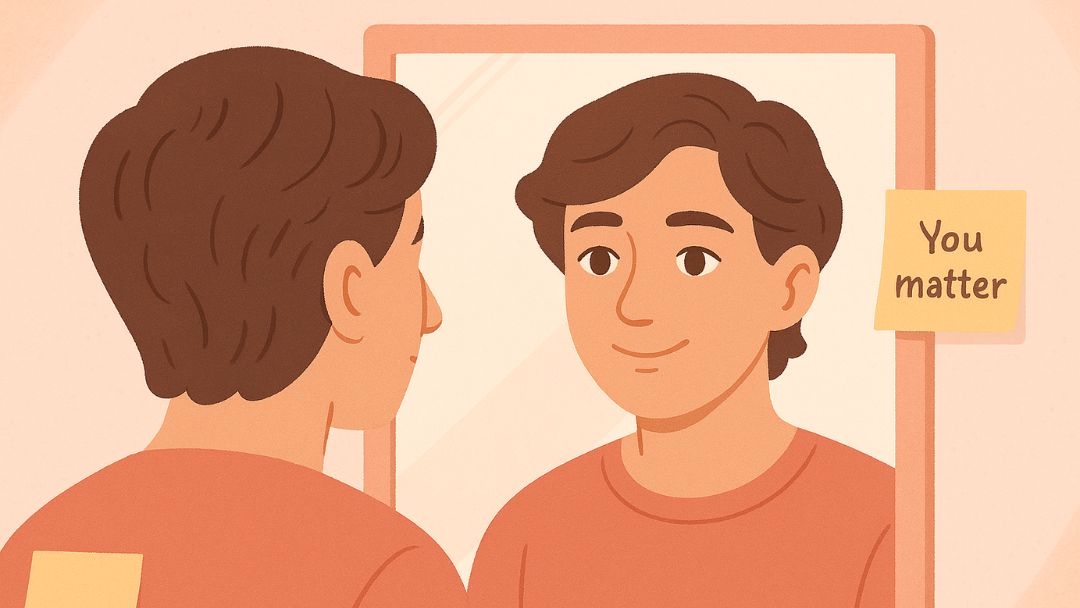
Keeping your body and mind in shape helps you stay resilient when job search stress weighs you down.
When you’re dealing with job search depression, it’s easy to slip into unhealthy habits, such as skipping meals, staying up late, overeating junk food, or lying in bed all day.
Try to stay active, even if it’s just a short walk every day. Eat meals that nourish you. Keep a consistent sleep schedule. Journal to release what’s building up inside. These little habits don’t solve the job hunt, but they give you the energy to face it.
Don’t Just Cope; Start Improving Your Chances of Landing the Right Job
I’ll be honest with you. Finding a healthy release for my emotions, creating structure in my day, staying connected, and taking care of myself all helped to alleviate my job search depression significantly. They gave me enough strength to hold on when things felt uncertain.
But the truth is, nothing restores hope and stability like finally landing the right role.
Your financial worries ease, your confidence rebounds, and the rejections that once stung suddenly fade into the background. So while these strategies can help you manage the emotional toll of job searching, the real breakthrough comes from securing the job you’ve been working toward.
Try to figure out why your job search hasn’t clicked yet, and how to turn that around. Maybe your resume needs a sharper edge, or your interview skills could use some refinement. Once you identify and fix what’s holding you back, you’ll make real progress toward the life and stability you deserve.
When Job Search Depression Becomes Something More
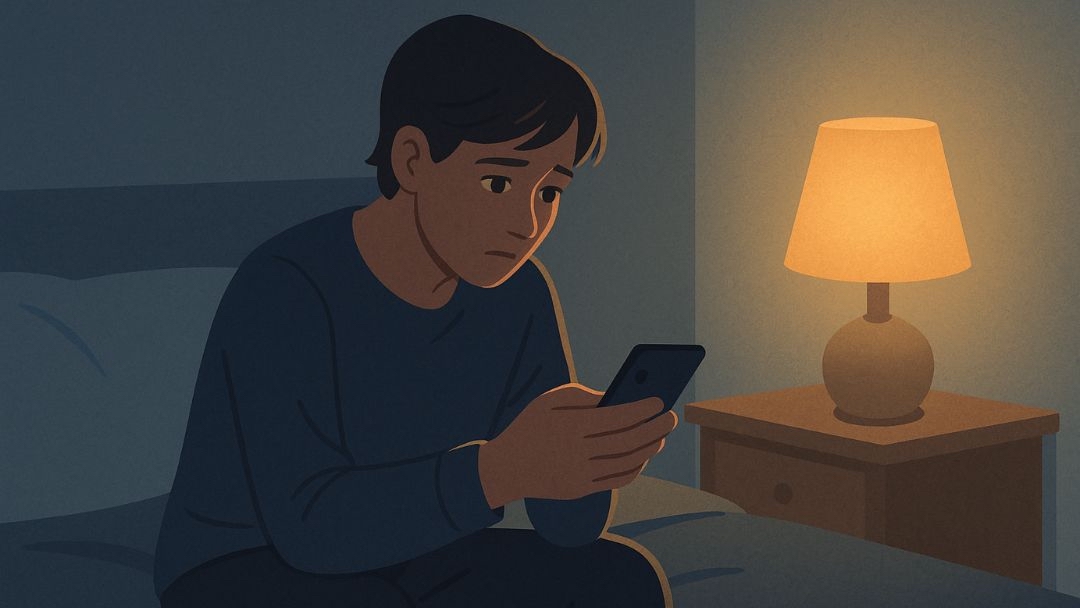
What you’re feeling may be a form of situational depression — a natural response to stress, rejection, and uncertainty. Many people who can’t find a job and start feeling depressed are actually experiencing this kind of temporary, situational low.
But if your sadness deepens, your motivation disappears, or everyday life begins to feel overwhelming, it could be a sign of something more serious. In that case, reach out for professional help. You can also take our Depression Symptoms Check to better understand what you’re experiencing and find the right next steps for support.


Return to Blog

